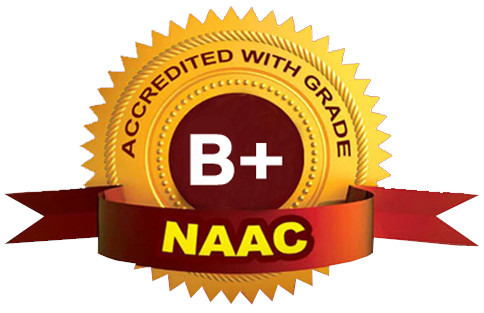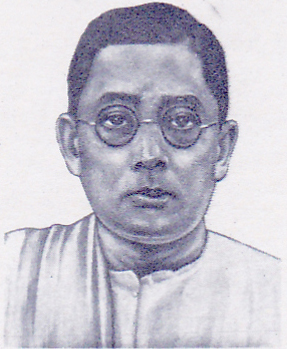An illustrious son of Assam, Professor Krishna Kanta Handiqui is one of the greatest Sanskritists and Indologists of the world, and above all, a rare educationist with uncommon ability and vision. During his life time, he became a legendary figure, and even today, the very name K.K. Handiquistands for all the good and great qualities of a saintly person. A man given completely to profound study and never bothering about popularity, power and fame; Prof.Handiqui was a strict disciplinarian in the domain of educational administration.
Handiquiwas born at Jorhat in Upper Assam on 20/07/1898. He was the eldest son of the illustrious Raibahadur Radha Kanta Handiqui, a reputed tea planter and philanthropist of Assam. Handiqui had his early education at Jorhat Govt. High School and then at Cotton College, Guwahati. Even during his college days, he contributed illuminating articles to Assamese magazine ‘Banhi’ edited by Sahityarathi Lakshminath Bezbaruah. His English articles were published in research journals like ‘The Modern Review’ and ‘The Indian Antiquary’, Bombay. All of his articles bear the stamp of his wide study and clear exposition.
From 1930 to 1948, Handiqui served as the founding Principal of Jorhat Jagannath Baruah College, the first Non-government Degree College in the entire North-East region of India. Subsequently, from 1948 to 1957, he held the position of the founding Vice-Chancellor of the University of Gauhati, the oldest university in the North-East. In 1952, he was elected the President of the Inter-University Board of India and also presided over the Vice-Chancellors’ Conference at Madras University and the Annual Conference of the Board at Waltair, Andhra in the same year.
Professor Handiqui’s lineage can be traced back to an aristocratic Ahom family with traditional connections to the Ahom monarchs of medieval Assamwho ruled over the kingdom of Assam for six hundred years at a stretch till 1826 when the kingdom got annexed to the territory under the sway of the East India Company. The family name “Handiqui” finds its origin in the Tai Ahom language, meaning a bridge to lay. Born in Jorhat in 1898, Handiqui, the eldest son of Raibahadur Radha Kanta Handiqui, excelled in education, securing a First Class in B.A. Honours in Sanskrit and later obtaining an M.A. in Sanskrit from Calcutta University in 1919.
His 7 years sojourn in Europe from 1920 to 1923 broadened his linguistic repertoire, learning languages such as Latin, Greek, French, German, Russian, Italian, and Spanish.Handiqui spent four years in France and Germany. He studied and learnt many a language like Latin, Greek, French, German, Russian, Italian and Spanish. Instead of going for higher degrees, he considered it worthwhile to learn as much of European literature and as many of European languages as he could.Because of his love for learning languages, he had the distinction of knowing as many as 13 languages including his mother tongue. When in Europe, Handiqui’s heart was in Assam, and he occasionally contributed valuable articles in Assamese to journals like ‘Banhi’ and ‘Cetana’. His pioneering works in Assamese on Western literature and criticism acquainted the readers with various aspects of Spanish, Greek, Russian and German literatures.
The unparalleled fame of Prof. Handiqui lies on three of his monumental works. The first was the English translation of the Sanskrit Mahakavya“Naisadhacarita”of Sriharsapublished in 1934 as the first ever translation which immediately made Prof. Handiqui known to the whole world.“Naisadhacarita” composed in circa twelfth century, is the toughest of all the Sanskrit epics.
“Yasastilaka And Indian Culture”, the second monumental work of Prof. Handiqui earned him more eminence. It was published in 1949 by Jain Sanskriti Samrakshaka Sangh of Sholapur (Moharastra), and the second edition came out in 1968. The general editors of the book Dr. A.N. Upadhye and Dr. H.L. Jain wrote in the Preface, “In fact, Sanskrit studies have become richer by Prof. Handiqui’s contributions on the Nasadhacarita and Yasastilaka…Obviously his sest for Indian learning is a part of his personality; and his devoted self-training in Western Universities has equipped him with the knowledge of many European languages, Catholic taste and Critical outlook.
Handiqui’s third monumental work “Pravarasena’sSetubandha” was published by Prakrit Text Society as Prakrit text series XX in 1976 from Ahmedabad under the General Editorship of Professor H.C. Bhayani and Professor D.D. Malvania. As commented by the General editor, “Prof. Handiqui’s critical translation of Pravarasena’sSetubandha is one of the few woks that mark the highest achievement in the major literary genre of Mahakavya. No recent work of Prakrit literary scholarship matches the present work in richness of the exegetical materials culled after a meticulous scanning of numerous commentaries so as not to miss any significant detail.
Prof. K.K. Handiqui was a scholar of singular distinction, a pioneer Indologist and a philanthropist whose life epitomised an era marked by sacrifice, diligence and devotion to high principles. Addressing the young graduates in the first Convocation of the Gauhati University held in 1951 he said, “I need not remind them of then nascent responsibilities and the great tradition they have to carry forward as worthy citizens of India. They must remember that it is not degrees but character and the purity of the heart that will entitle them to the dignity of man. In a world full of temptations they have to keep their balance and resist the forces of evil.”
Though he was totally indifferent to them, laurels, accolades and recognition followed Handiqui’s illustrious career. He was made President of Asom Sahitya Sabha in 1937 at the age of thirty-nine and President of Classical Sanskrit Section, XVI All India Oriental Conference, Lucknow in 1951 and was elected the general President of the Srinagar session of the same in 1961. He was awarded honorary fellowship of Deccan College, Poona in 1968, a rare distinction reserved for scholars in India and abroad and received only by four others so far. He received the honorary D. Litt. Degree of Guwahati University in 1968 and that of Dibrugarh University in 1972. In 1984 the Sahitya Academy Award was presented to Prof. Handiqui posthumously. He was made the first “SadasyaMahiyan” of the Asom Sahitya Sabha, the highest honour conferred on scholars of exceptional merit.


